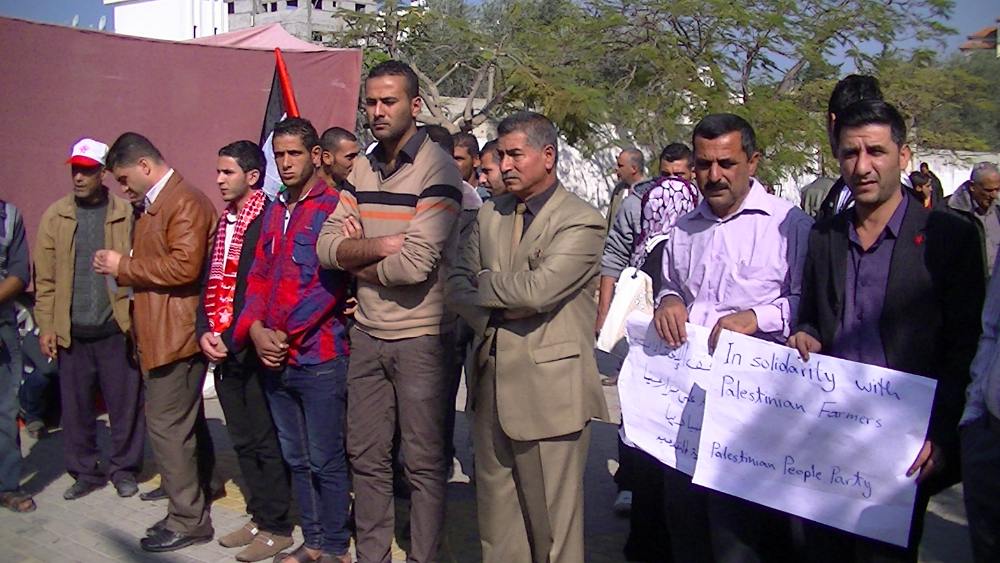Category: Gaza
-
Israeli forces capture two Palestinian fishermen and seize their boat off Gaza
21st November 2013 | International Solidarity Movement, Rosa Schiano | Gaza, Occupied Palestine On Sunday, 17th November 2013, two Palestinian fishermen were captured by Israeli naval forces, who also confiscated their boat, in Gaza waters. Ammar Asad al-Sultan, age 19, and Mohsen Zayed, age 25, were on a small fishing boat, or hasaka, without an engine,…
-
Gazan farmers and fisherfolk call for food sovereignty and an end to Israeli attacks
20th November 2013 | Corporate Watch, Tom Anderson and Therezia Cooper | Gaza, Occupied Palestine On 20th November 2013, hundreds of farmers and fisherfolk gathered outside the United Nations Special Coordinator for the Middle East (UNSCO) in Gaza City to demand that the international community take action to prevent the Israeli military’s attacks against them and to…



